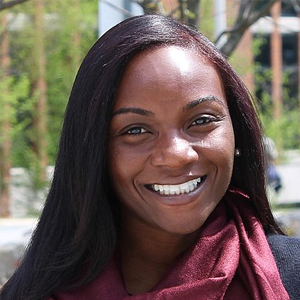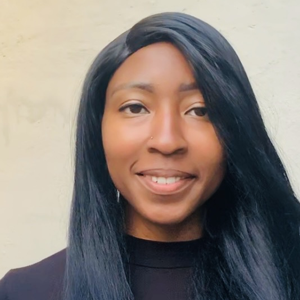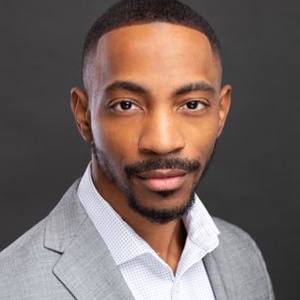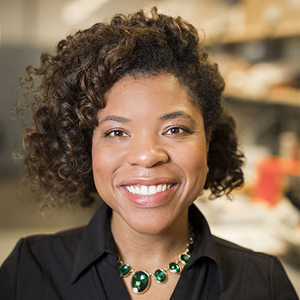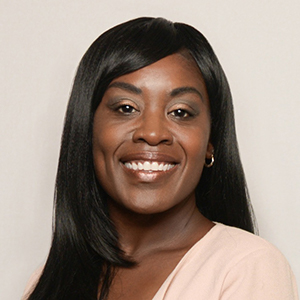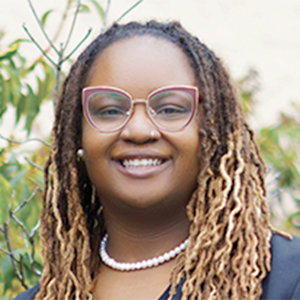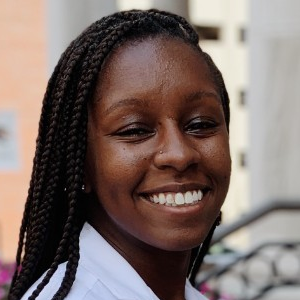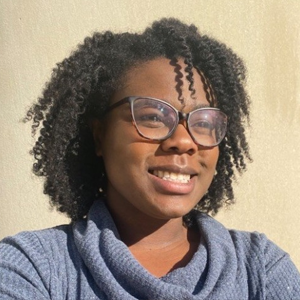Black scientists to follow
For this week’s column, in honor of Black History Month, I am showcasing Black scientists you should follow. Let’s continue to amplify the voices of Black scientists. Nominate, hire and invite them to have a seat at the table, because Black scientists are needed in all spaces. My hope is that, in 2022, we continue to see progress.
COVID-19 vaccine scientist
One of my favorite Black scientists to follow is Kizzmekia Corbett. She played an instrumental role in the groundbreaking research that led to the development of an mRNA-based vaccine by Moderna for COVID-19. She uses her virology expertise to communicate to communities of color about vaccines. She is an assistant professor at the Harvard T.H. Chan School of Public Health after spending six-plus years as a research fellow at the National Institute of Allergy and Infectious Diseases Vaccine Research Center.
#BlackInCancer scientists
In 2020, Sigourney Bell and Henry Henderson III started #BlackInCancer, one of the #BlackInX movements, to highlight and support Black cancer researchers.
“#BlackInCancer began with a simple conversation between two Black cancer researchers on other sides of the Atlantic over Twitter — a conversation that led to an understanding that, actually, our experiences were quite similar,” said Bell, a Ph.D. student in oncology at the University of Cambridge. Bell's research focuses on developing novel models and therapeutics for pediatric brain tumors — specifically, supratentorial ependymoma.
Henderson is a cancer biologist and health-promotion advocate. He is a medical science liaison focused on hematology/oncology for the pharmaceutical company AbbVie.
“Our aim, although we never expected it to get this far, was to bring together, highlight and support Black cancer researchers as well as bringing information to the community about cancer to enable them to be informed about their healthcare decisions,” Bell said.
After the success of the first #BlackInCancerWeek, they knew this was more than a hashtag. It was an organization for the Black community with the mission of strengthening networks and highlighting Black excellence.
In 2021, sponsorships gave them the opportunity to do more. In collaboration with the Emerald Foundation, a private biomedical research foundation, #BlackInCancer announced its inaugural postdoctoral fellowship. The winners were Jaye Gardiner, Jessica Queen and Uriah Israel. The fellowship provides $75,000 for two years and then $100,000 when the awardees transition to faculty positions.
“We’ve managed to achieve an incredible amount over the last year, including establishing three postdoctoral fellowship awards as well as a distinguished investigator award," Bell said.
The group has given away more than $400,000 in funding for Black scientists, she said.
"We still have a long way to go, but we’re hopeful that this is just the beginning,” she said.
#BlackWomeninBMB
Last year, I moderated the #BlackWomeninBMB Twitter chat for the ASBMB. The goal was to create a safe space where Black women scientists could share their experiences. The two major themes that stood out to me were the importance of representation and using resources available to you.
Theme 1: Representation
Sometimes being a Black woman in BMB means being one of a few. If we want to increase the number of Black women in BMB, we have to come together as a community to make safe spaces for them as well as highlight and support them.
Breann Brown is an assistant professor of biochemistry at Vanderbilt School of Medicine Basic Science. Her research focuses on the structural biology of protein complexes that control mitochondrial action.
In a 2020 interview, she told ASBMB Today, "I identify as a Black woman first and foremost" She said she brings her identity and experiences to the table when mentoring students so they can have a community of support.
“Black women are scientists. Treat us as such. Invite us to meetings, include us as collaborators, speak to us at conferences. We contribute so much, not just DEI,” Brown tweeted during the chat.
Kayunta Johnson–Winters echoed the importance of representation. She is an associate professor at the University of Texas at Arlington in the department of biochemistry and chemistry, where she studies F420 cofactor dependent enzymes.
Johnson–Winters is a member of the ASBMB Minority Affairs Committee, which works to ensure that diversity, equity and inclusion are priority throughout the society. She wrote about her personal experiences in a 2020 essay titled "Being Black in the ivory tower" in ASBMB Today. In her essay, she said she's glad her presence at the front of the classroom breaks stereotypes.
During the chat, she tweeted that universities should assess diversity, equity and inclusion and tenure-and-promotion policies “work towards inclusivity, retention and climate change." She added: "Funding agencies should assess policies and determine why so few Black faculty are funded and change it. Established colleagues should find someone to sponsor.”
This is not a simple process — it is continuous. The more we push for new and better policies, the more it will become the norm for all universities, institutions and organizations.
Melanie McReynolds is a new assistant professor at the Pennsylvania State University focusing on metabolic diseases and aging.
“Continue to listen and be intentional — organically, change will occur. The work you see Black women do will be the roads to follow. Just check out what Tracy Johnson is accomplishing at UCLA, as an example — it’s a model worth following,” McReynolds tweeted.
Theme 2: Resources
Jazmine I. Benjamin is a biomedical sciences Ph.D. candidate in the division of nephrology at the University of Alabama at Birmingham. She studies sodium-independent mechanisms of blood-pressure control. She is also interested in policy, communication and K–12 STEM education. She shares her experiences with younger students who are interested in science.
“(U)se your resources! #BlackInStem (and) #BlackInX have been massive for me in terms of creating relationships that extend beyond academia. I would also get involved on your campus if you're in a traditional program,” Benjamin tweeted.
Shellaina Gordon, a biology intern at Coral Genomics, encouraged those watching the chat to "find your people, both those who look like you and others who don't."
She added that she's availble to those who need support: “I don’t bite and I love making friends, supporting cool science, and breaking down barriers.”
Continue to follow #BlackWomeninBMB and check out more ASBMB Twitter Chats.
Enjoy reading ASBMB Today?
Become a member to receive the print edition four times a year and the digital edition monthly.
Learn moreGet the latest from ASBMB Today
Enter your email address, and we’ll send you a weekly email with recent articles, interviews and more.
Latest in Opinions
Opinions highlights or most popular articles

Sketching, scribbling and scicomm
Graduate student Ari Paiz describes how her love of science and art blend to make her an effective science communicator.

Embrace your neurodivergence and flourish in college
This guide offers practical advice on setting yourself up for success — learn how to leverage campus resources, work with professors and embrace your strengths.

Survival tools for a neurodivergent brain in academia
Working in academia is hard, and being neurodivergent makes it harder. Here are a few tools that may help, from a Ph.D. student with ADHD.

Hidden strengths of an autistic scientist
Navigating the world of scientific research as an autistic scientist comes with unique challenges —microaggressions, communication hurdles and the constant pressure to conform to social norms, postbaccalaureate student Taylor Stolberg writes.

Black excellence in biotech: Shaping the future of an industry
This Black History Month, we highlight the impact of DEI initiatives, trailblazing scientists and industry leaders working to create a more inclusive and scientific community. Discover how you can be part of the movement.

Attend ASBMB’s career and education fair
Attending the ASBMB career and education fair is a great way to explore new opportunities, make valuable connections and gain insights into potential career paths.


